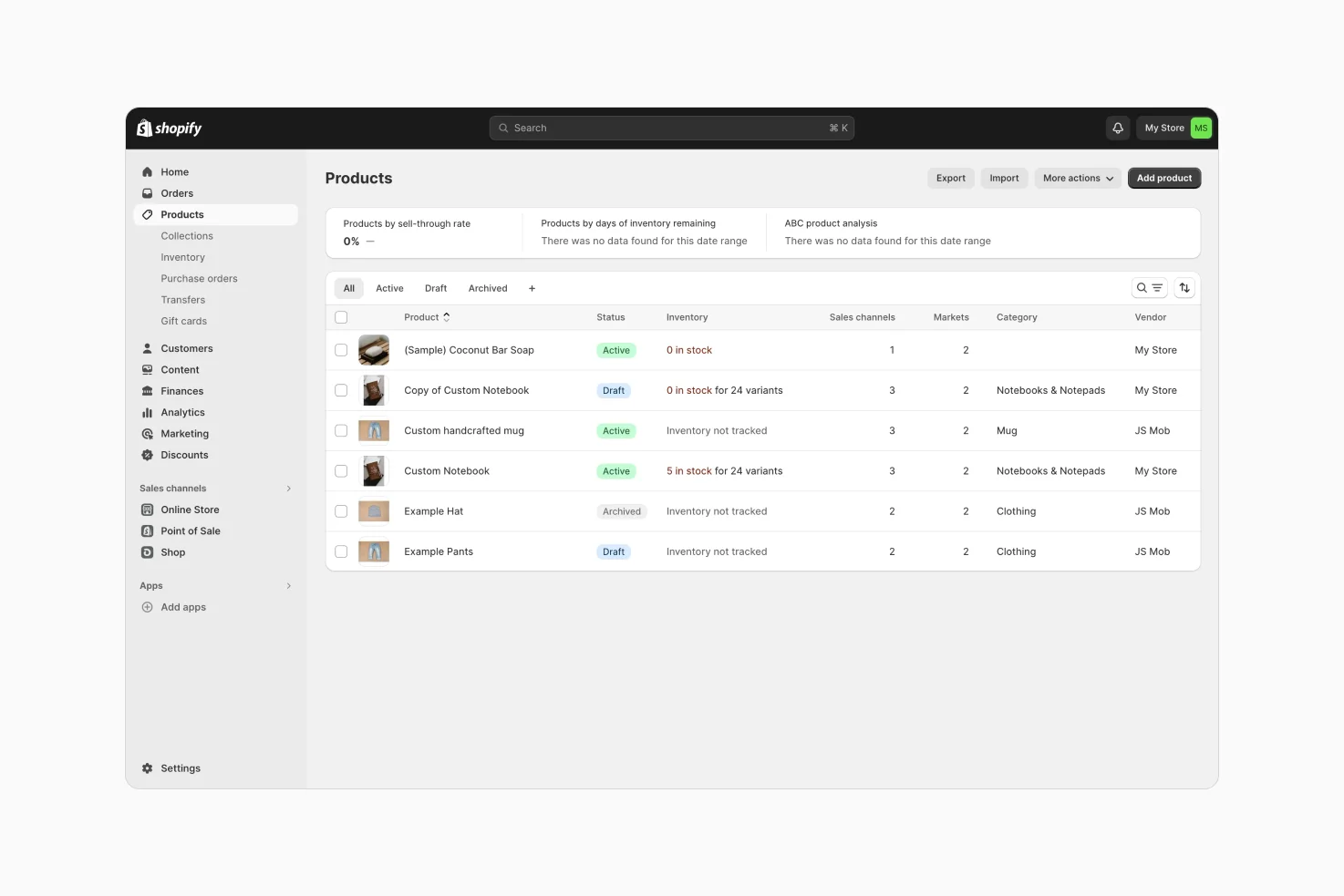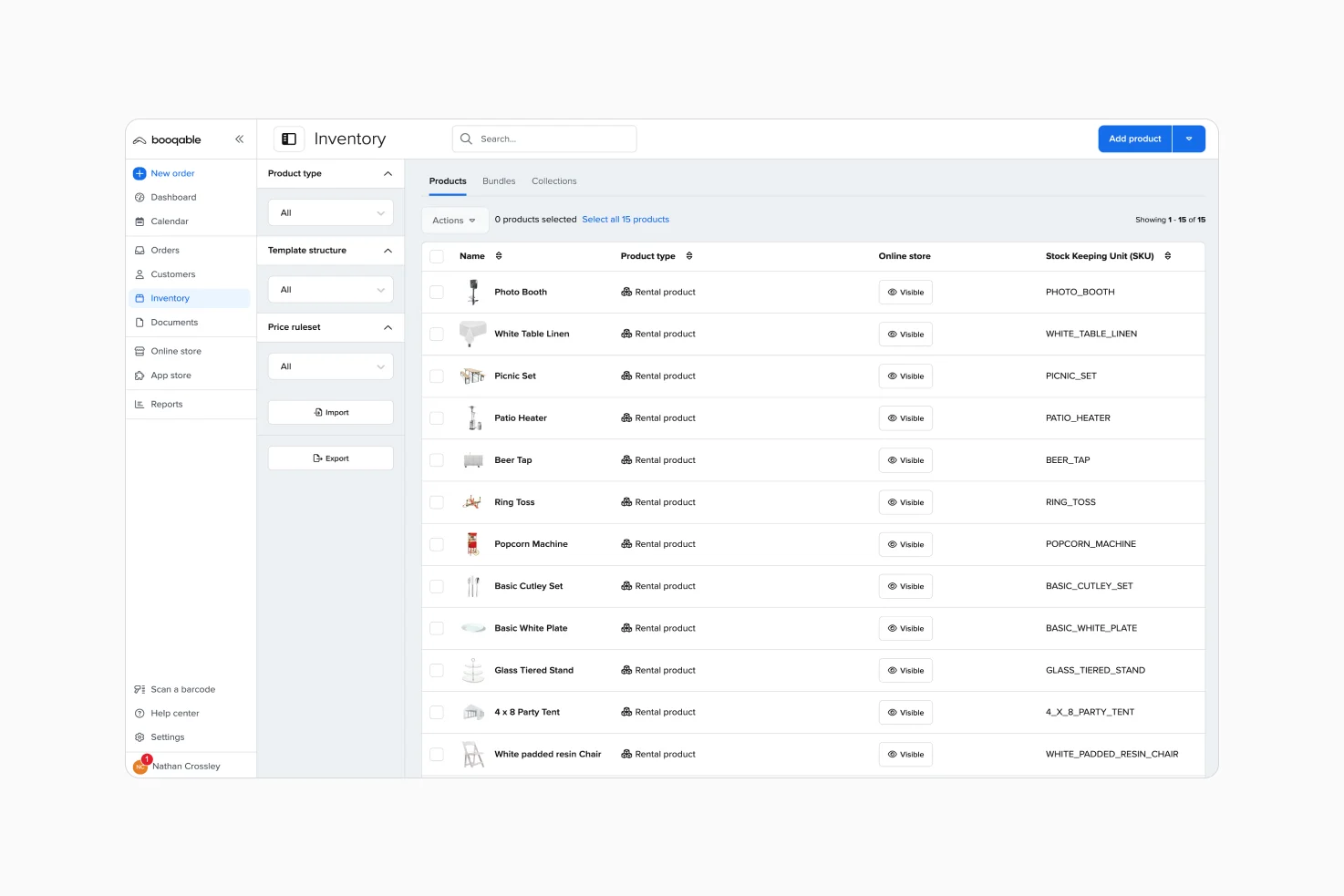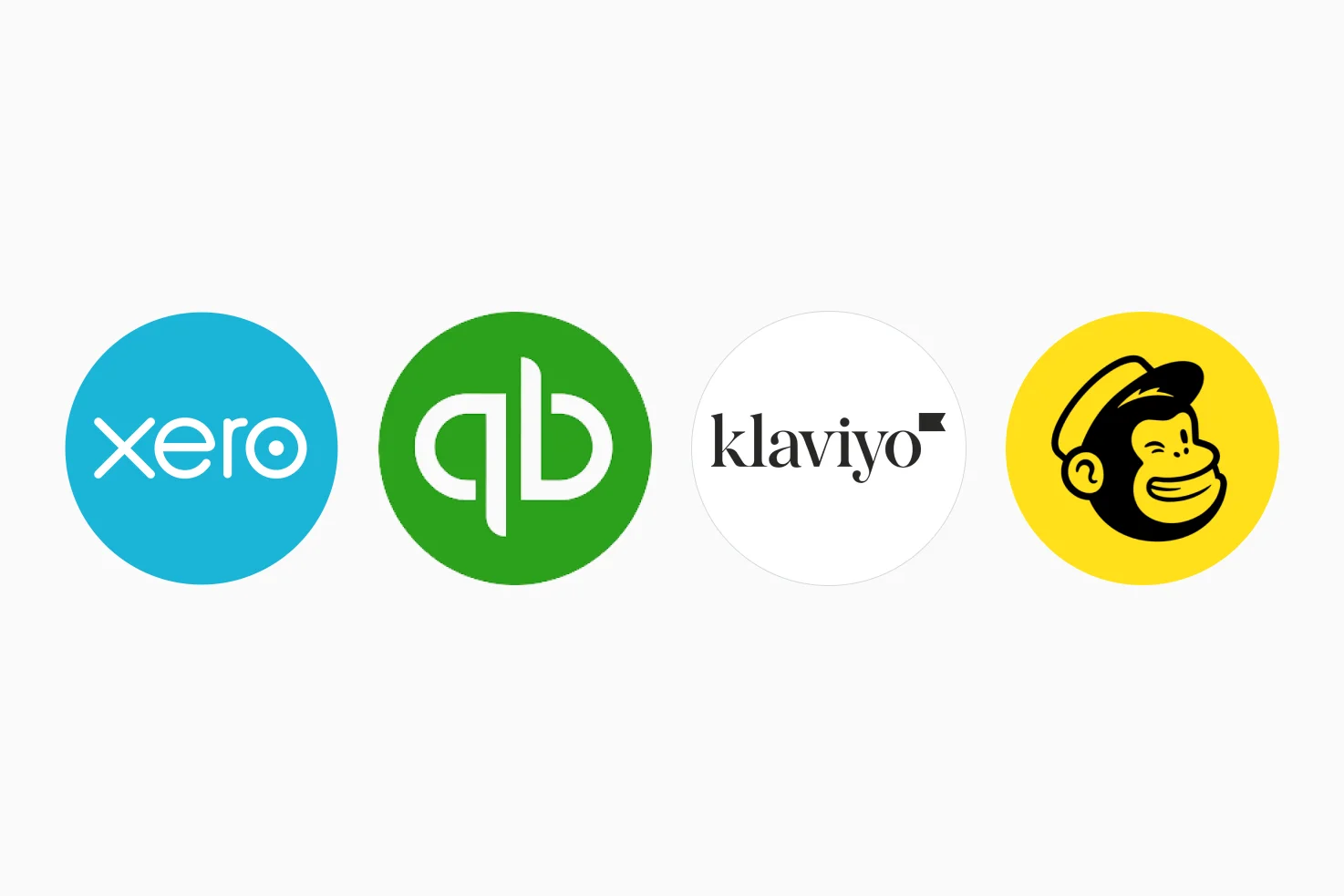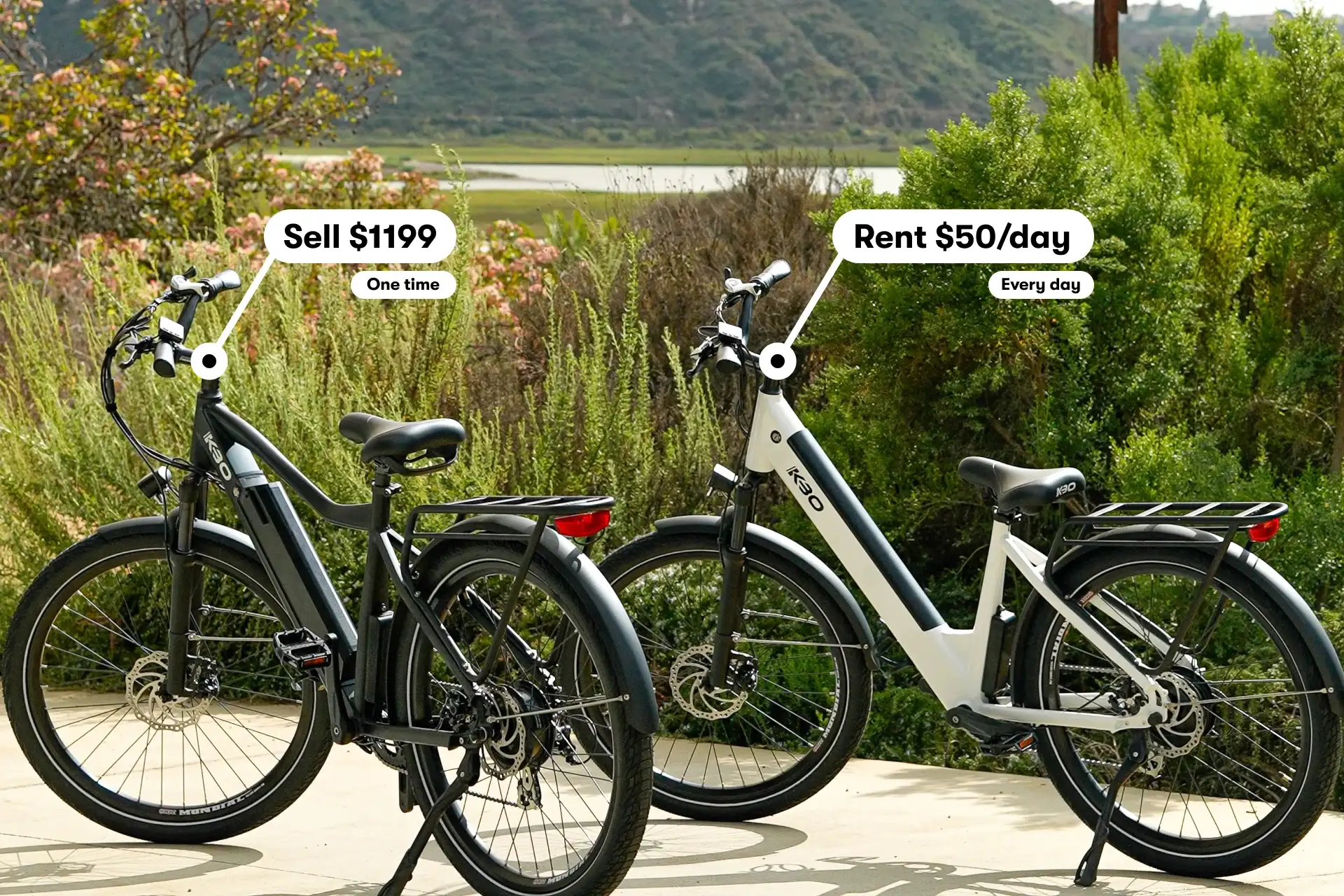Starting a business is a significant decision that shapes your future as an entrepreneur. While eCommerce and rental businesses both offer paths to success, they require different approaches, skills, and resources. This guide helps you understand the practical aspects of each model to make an informed choice.
How do eCommerce and rental businesses compare?
The global eCommerce market is on a trajectory to reach a staggering $7.4 trillion in 2026, as projected by Statista. Simultaneously, the rental market, a cornerstone of various economies, boasts an estimated annual value of $57.5 billion in the United States alone, according to Statista.
But how does this lucrative landscape translate for aspiring business owners? Well, about 51.6% of small businesses find their roots in home-based ventures, a trend that seamlessly aligns with local rental enterprises, as highlighted by BusinessDIT.
It’s also important to confront the reality that establishing a new business is no small feat. The US Chamber of Commerce reports an average 3-year survival rate of around 50% for both online and offline businesses, underscoring the challenges and uncertainties entrepreneurs encounter in the initial stages.
How much does it cost to start an eCommerce or rental business?
Starting an eCommerce or rental business requires careful financial planning. The investment patterns differ significantly between these models, affecting both your initial costs and ongoing expenses.
eCommerce businesses need continuous investment in inventory. You’ll need capital not just to start but to maintain stock levels as you sell. This means tying up more money in products over time. You’ll also need to account for unsold inventory, which can become obsolete or go out of style.
Rental businesses work from a different financial model. While the upfront investment might be higher, each item generates income multiple times. A $1,000 piece of equipment might rent for $100 per day, potentially paying for itself within months. This creates more predictable returns on your investment.
While rental businesses have higher upfront equipment costs, your ongoing expenses focus more on maintenance than replacement. This often means better cash flow once you’re established. Most successful eCommerce businesses reinvest 20-30% of their revenue into new stock.
To be successful in eCommerce, you need a keen understanding of online platforms and digital marketing to drive sales. In contrast, rental businesses thrive on efficient inventory management and logistics. You should consider which appeals to you and what skills you can apply to your new business venture.
What’s involved in running an eCommerce or rental business?
eCommerce businesses focus heavily on inventory management, requiring daily stock monitoring, reorder tracking, and supplier relationship management. Order processing becomes a central task involving confirmation, picking, packing, and shipping coordination. Customer service primarily happens through email and chat, handling product inquiries and return requests.
Rental operations center around equipment maintenance and booking management. Daily tasks include cleaning between rentals, condition documentation, and repair scheduling. Customer interactions are more personal, with face-to-face equipment check-outs, demonstrations, and return inspections. Managing reservations and coordinating pick-ups and returns requires careful scheduling and clear communication.
How can you market an eCommerce or rental business?
The eCommerce landscape is certainly crowded, especially with the rise of social media stores and easy storefront tools. Standing out takes significant marketing, great branding, excellent customer experience, and often narrowing into niche products. If you go too broad, it’s almost impossible to differentiate.
However, local rental markets have much more fragmentation with fewer big brands. Opportunities exist by renting out products not well covered in your particular geography and cornering that local market. Launching a new exciting rental offering with minimal competition can fare quite well.
Social media platforms like TikTok offer opportunities for eCommerce marketing, but finding and connecting with the right audience demands strategic efforts. Meanwhile, identifying industries or services with limited rental support in your region presents opportunities for innovation and market capture.
What is the difference between customer interaction in eCommerce and rental businesses?
eCommerce companies usually have less direct contact with their customers, and interaction is transactional, mainly through a website. However, brands heavily invest in content, email marketing, and community engagement to foster loyal followings. This can be very time consuming and requires a considerable budget to get right.
Rental companies rely on strong local customer relationships as they interact in person each rental period. Business is highly relationship-based, with word-of-mouth and repeat business playing a significant role. Providing customer service breeds loyal clientele and helps build your business’s reputation.
While customer feedback is crucial, the communication channels for eCommerce are often indirect through reviews and online interactions. Due to their nature, rentals involve more direct interaction with customers, fostering relationships, and building trust. Starting a rental business on the side is often more feasible, requiring less continuous attention than managing a growing eCommerce enterprise.
What software tools are needed for eCommerce and rental businesses?
Starting an online business today means choosing the right software tools. Fortunately, both eCommerce and rental businesses have platforms that handle most technical needs without requiring multiple separate systems.

For eCommerce businesses, platforms like Shopify provide all-in-one solutions. These modern platforms include website hosting and design, inventory tracking, payment processing, basic analytics, customer accounts, order management, mobile shopping capabilities, shipping label creation, and tax calculations built in.

For rental businesses, specialized platforms like Booqable combine essential features in one system. This includes online booking management, equipment tracking, payment processing, customer management, availability calendars, maintenance records, document generation, reporting tools, and mobile access. The focus is on managing your rental inventory efficiently while providing a smooth booking experience for customers.

You might need additional specialized tools depending on your business needs. Many companies add email marketing through Mailchimp or Klaviyo to nurture customer relationships. Social media management tools help coordinate your online presence, while advanced analytics provide deeper insights into customer behavior. As you grow, dedicated customer support and accounting software like QuickBooks or Xero become valuable additions.
How can you grow an eCommerce or rental business?
eCommerce growth often involves adding product lines, entering new categories, or expanding geographically. Success might also involve developing multiple warehouses, offering international shipping, or adding a marketplace presence. Many businesses find opportunities in subscription services or custom products.
Rental businesses can grow by adding premium equipment, offering complementary products, or developing specialized services. Growth opportunities include delivery options, setup services, and training programs. Some businesses expand through additional locations or mobile operations.
eCommerce vs rentals, which suits you best?
Ultimately, the choice between starting an eCommerce or rental business depends on various factors, including personal preferences, market conditions, and the entrepreneur’s long-term goals. While eCommerce offers a global reach and vast potential, a rental business can provide a more localized, customer-centric experience.
Both business models have relatively low barriers to starting on the side before transitioning into full-time entrepreneurs. Aspiring entrepreneurs should carefully evaluate startup costs and strengths to determine if an online store or local rental better matches their skills, interests, and available capital.
Most important takeaways
Understanding business models: eCommerce and rental businesses require different approaches, skills, and financial investments. While eCommerce focuses on continuous inventory management and online sales, rental businesses emphasize recurring revenue through equipment rentals and maintenance.
Cost and cash flow considerations: eCommerce businesses require ongoing investments in inventory and marketing, whereas rental businesses demand higher upfront costs but offer predictable returns through repeat rentals. Choosing the right model depends on available capital and risk tolerance.
Operational differences: Running an eCommerce business involves digital marketing, logistics, and online customer service, while rental businesses require in-person interactions, scheduling, and maintenance management. Entrepreneurs should assess their strengths and preferences before deciding.
Marketing strategies: eCommerce businesses rely heavily on branding, social media, and digital advertising to stand out in a competitive market. In contrast, rental businesses benefit from local marketing, word-of-mouth, and niche targeting in underserved areas.
Growth opportunities: eCommerce businesses expand through product diversification, global shipping, and subscription services. Rental businesses grow by adding premium inventory, offering delivery and setup services, and expanding into multiple locations.




